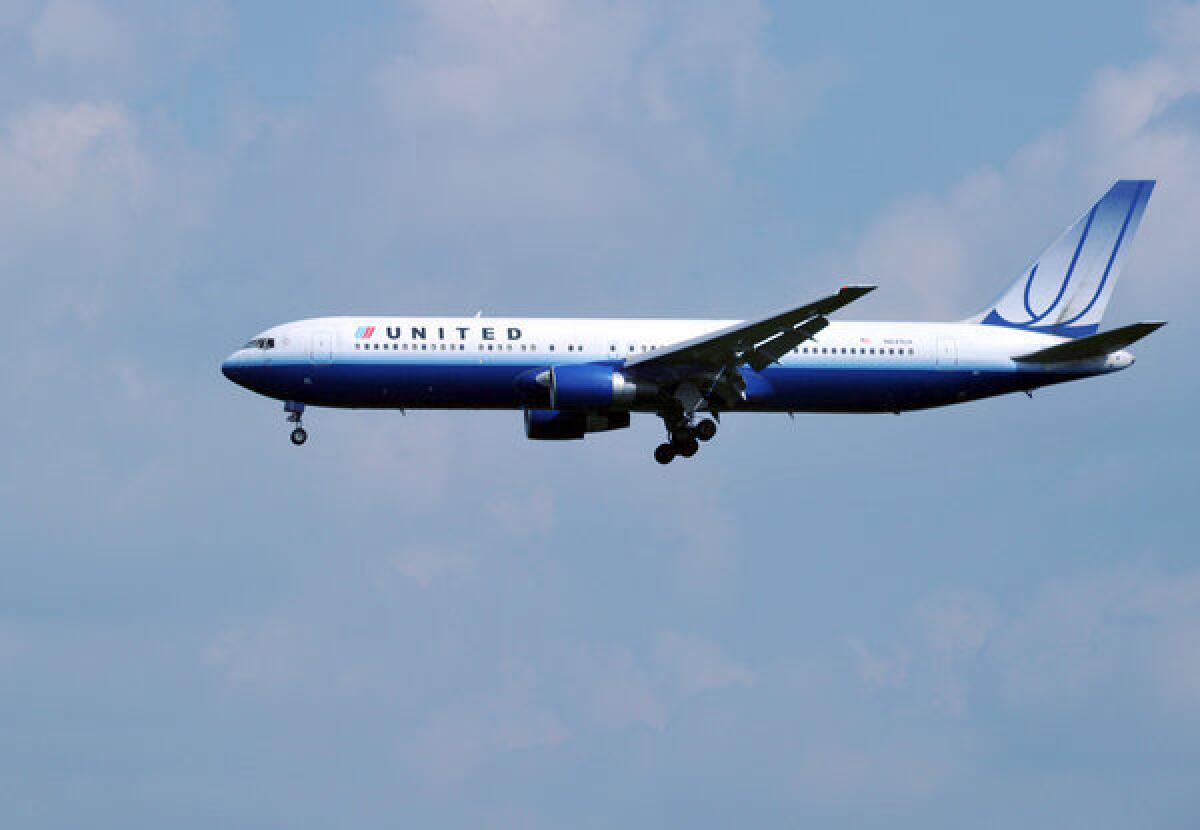On the Spot: On this United flight, seats come at a premium

- Share via
Question: I have a complaint about being forced to pay $60 extra for an Economy Plus seat for a United flight from New York to L.A. The only seats offered were Economy Plus. It’s not that the economy seat options were exhausted — there were none to start with. I thought this was a technical glitch, so I confirmed my purchase and called United to get my seat assignment. The ticketing agent had no clue why those seats were Economy Plus only. It’s like paying the fare to get on a public bus, and then once you get on the bus, being told that you have to pay an additional $60 just for a seat.
Kenneth Ong
El Segundo
Answer: In all the furor this summer about seating, I had forgotten about United’s Premium Service flights, which have been around since 2004, although they were apparently flying under my radar and Ong’s too.
But not Charlie Hobart’s. The United spokesman said this in an email: “All flights between JFK and LAX or SFO [San Francisco] are p.s. Premium Service flights. We use three-cabin 757 aircraft with United First p.s., United Business p.s. and United Economy p.s, which offers Economy Plus seating throughout the entire cabin.” He sent a link for more information (www.lat.ms/Lvj1Xb), which announces that in economy you get up to five extra inches of legroom and a free copy of Hemispheres magazine. These may be attractive perks, but if you’re 5 feet 2 inches and read about travel all day, $60 seems a lot to pay for legroom you don’t need and a travel magazine you don’t especially want.
But such fees do have an upside, although not one that may be apparent to the consumer.
“These [fees] have been an important source of revenue the last few years,” said Alicia Jao, vice president of travel media at Nerdwallet.com, a personal finance and travel website. “It has enabled [airlines] to achieve a profit.”
The most recent statistics from the Bureau of Transportation Statistics do, indeed, show that airlines are profitable, making $228 million in the first quarter of 2012. Delta alone made $386 million. If you’re quick with math, this suggests that some airlines lost money, and the biggest loser was United at $284 million. (Other first-quarter losers: American at $102 million and AirTran, Southwest’s new bedfellow, at $7 million.)
The Transportation Statistics Bureau doesn’t break out seat fees, but it does have categories for baggage fees (the now familiar $3.4 billion in 2011) and change/cancellation fees (a mind-boggling $2.4 billion, also in 2011).
You can hope airlines will see the downside to the fee frenzy, but, Jao notes, “I think these are here to stay.”
We’ll see what happens to United, which is struggling after its merger with Continental. It has many issues to confront, so this may be far down on the list.
It also raises an interesting possibility — one that I ran by Andrew R. Thomas, author of “Soft Landing: Airline Industry Strategy, Service, and Safety.” Is it possible that it’s time for a one-class-of-service aircraft that caters to higher-end or business travelers?
In an email, Thomas replied, “The question … might be best answered within the context of the Yogi Berra dictum, ‘In theory, there is no difference between practice and theory. In practice there is.’”
Thomas agreed that two classes of aircraft would make sense. “However, in practice, given the constant ‘crisis’ the airline industry always seems to be in, any major alteration to the present model is not a realistic possibility: Think the Concorde, for example.”
Ah, yes, the supersonic and now, super-dead Concorde.
So what are we, the pitiful consumer, to do? Awareness, Jao counsels, which means using a fee disclosure tool (NerdWallet has one at https://www.nerdwallet.com/travel) until such time as the Department of Transportation mandates that all fares come with such disclosures. As Ong noted — and I learned after doing a test-booking — you don’t know that United’s JFK-LAX flights are Premium until you get to booking your seat. It’s a question of transparency, when you get down to it. It’s not wrong to make money — the more airlines we have, the lower airline ticket prices will be, thanks to competition, but it’s not fair if we feel tricked into helping an airline achieve it.
Have a travel dilemma? Write to travel@latimes.com. We regret we cannot answer every inquiry.
More to Read
Sign up for The Wild
We’ll help you find the best places to hike, bike and run, as well as the perfect silent spots for meditation and yoga.
You may occasionally receive promotional content from the Los Angeles Times.







